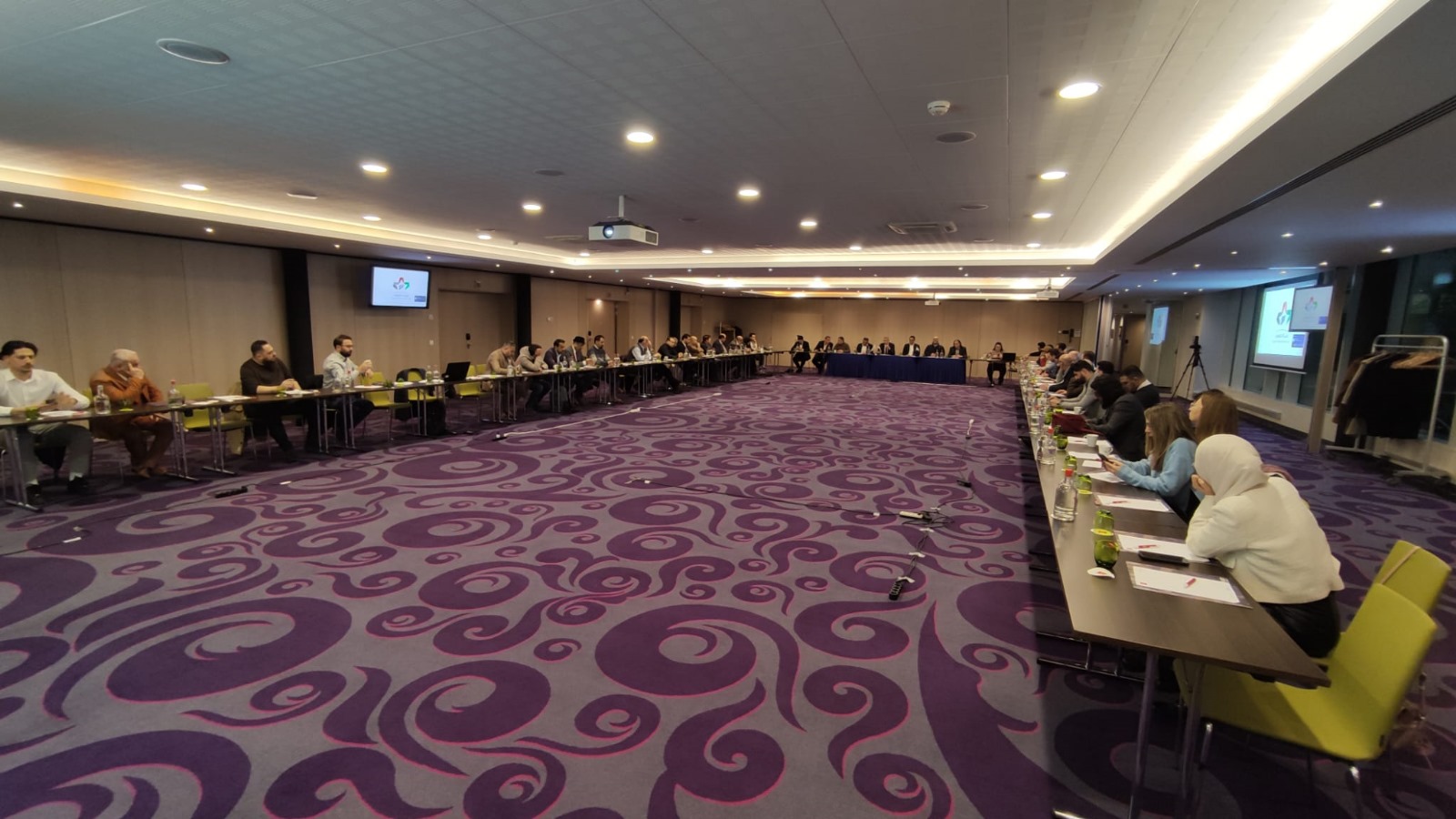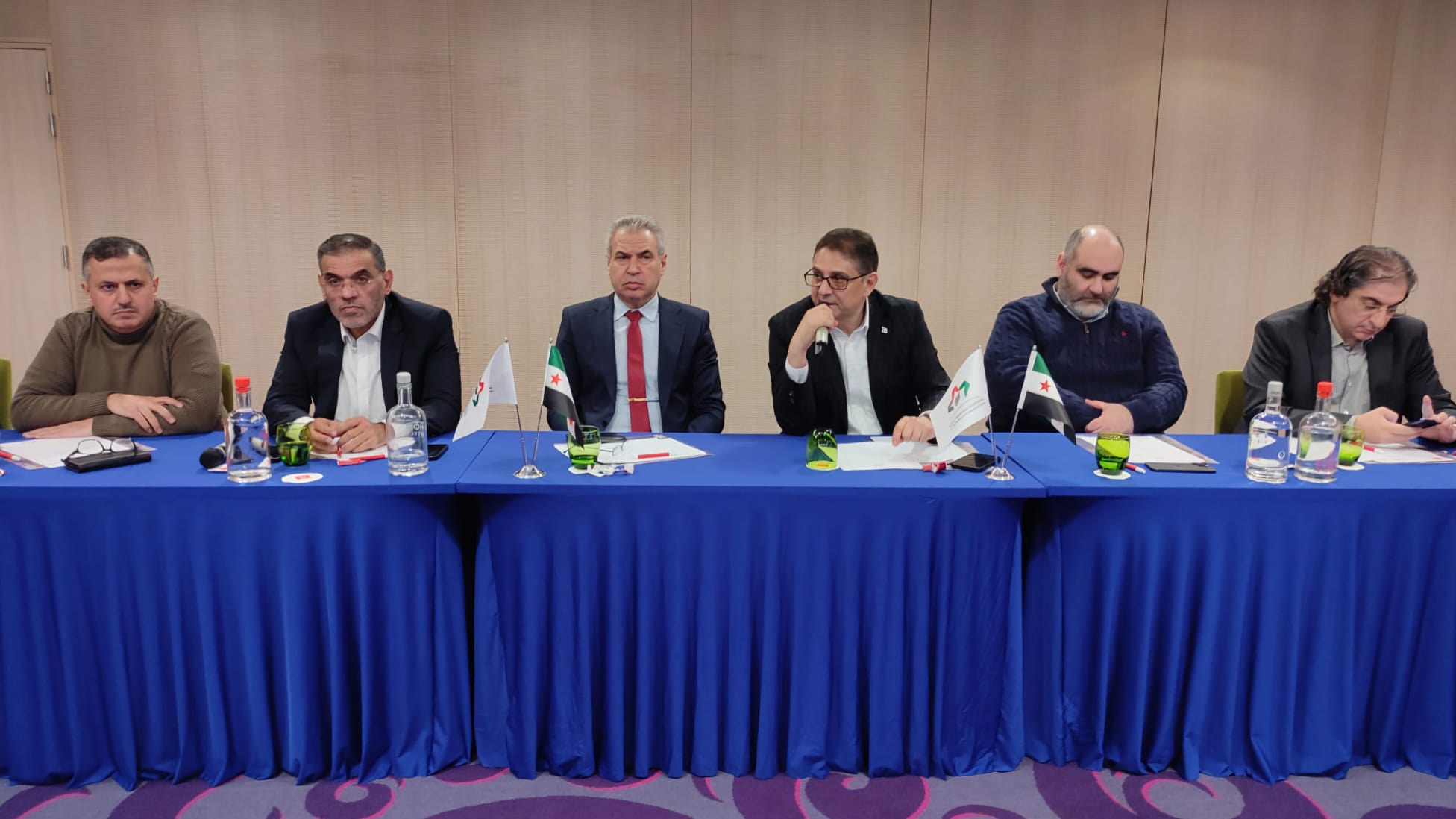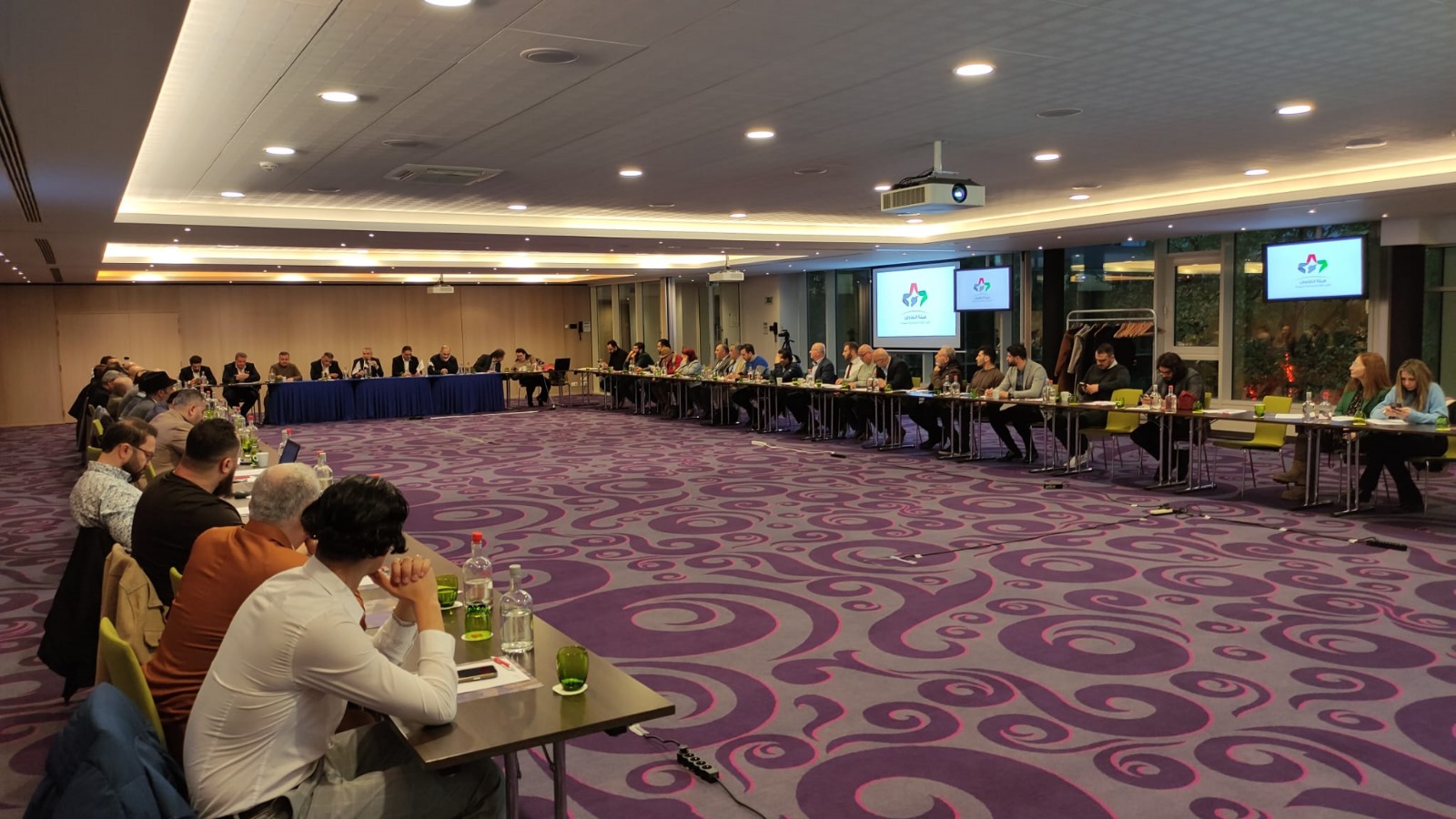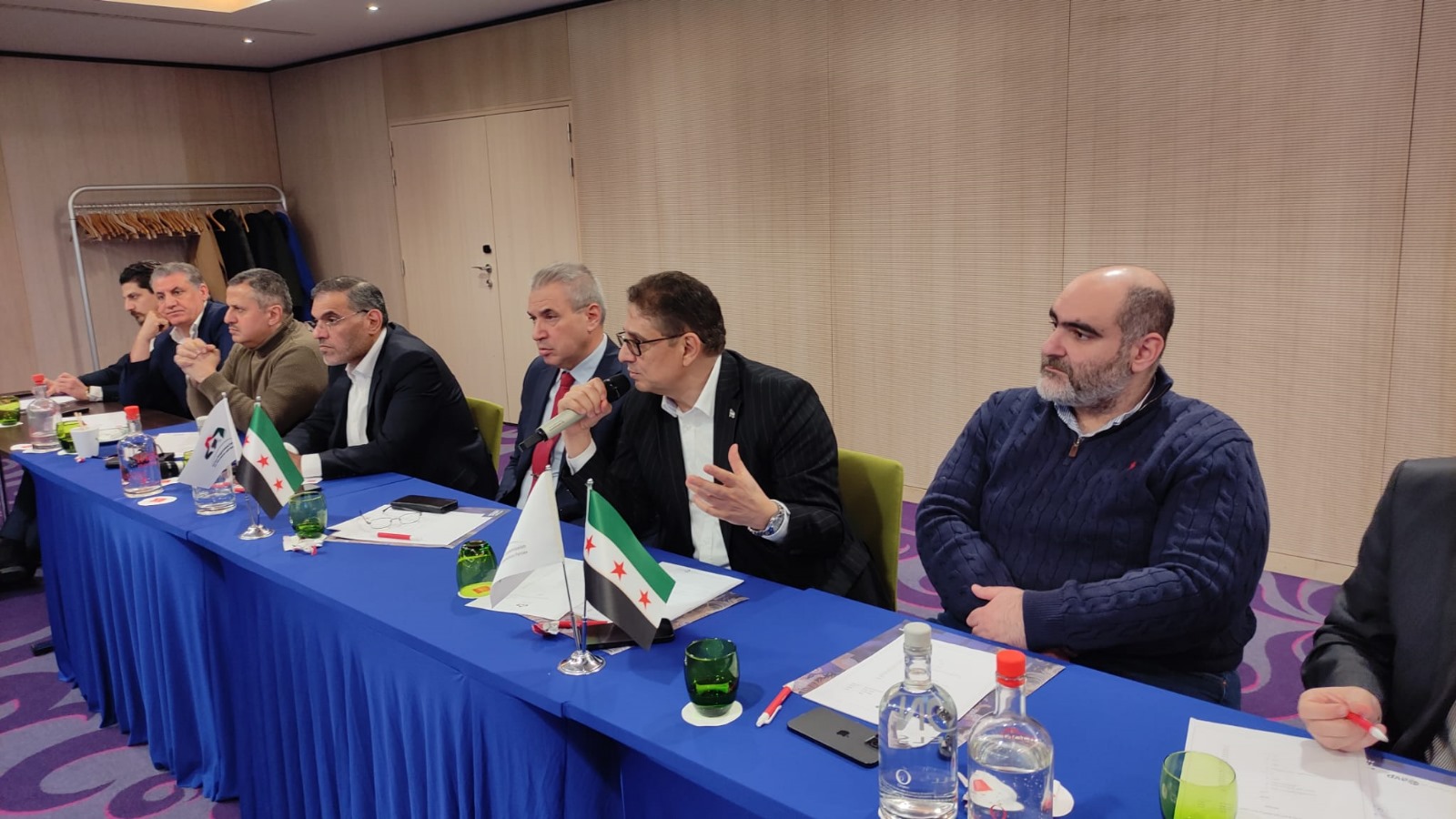An expanded consultative meeting in Brussels with a broad Syrian presence
Dr. Jamous reviews the reality of the political process with civil society organizations

November 11, 2024
In an effort to deepen the relationship with the broadest segments of civil society, and to discuss the latest developments related to the Syrian political process, and the accelerating events at the Syrian, regional and international levels, and to establish mechanisms for consultation with the broadest segments of Syrian society in Europe and countries of asylum, the Syrian Negotiating Commission held a consultative meeting with civil society today, Monday, in the Belgian capital, Brussels, entitled: “Developments in the Syrian Situation and the Political Process”, with the aim of enhancing dialogue and cooperation between the Commission, civil society, political parties, active forces and Syrian lobbies to establish strategic partnerships that support common national goals and the political process.
The meeting was attended by the head of the Syrian Negotiating Commission, Dr. Badr Jamous, and a number of members of the Commission, and was attended by a large number of workers in Syrian civil society, organizations, unions, parties and independents active at the political and social levels.
During the meeting, the head of the Commission provided a comprehensive and extensive briefing on the local and international diplomatic, political and legal efforts made by the Commission to move forward a comprehensive political solution based on international resolutions, most notably UN Resolution 2254, reviewing the positions and strategies of countries, and highlighting the challenges facing the political process, the difficulties facing the Commission, and its efforts at the international level and in the Security Council to move forward the political process, and keep the Syrian issue among the priorities of countries.
During the meeting, which was attended by members of the Commission, Mr. Anas Al-Abdah and Mr. Ibrahim Brou, Director of the Geneva Office of the Commission, Mr. Hussein Sabbagh, and member of the National Coalition, Mr. Muhammad Yahya Maktabi, Dr. Jamous, shed light on the intensive meetings with envoys of countries, politicians and diplomats at the Arab and international levels, the continuous activity of the Commission at the level of the United Nations and the Security Council, and communication with members of the Security Council to clarify the Syrian reality and the dangers of the Syrian regime continuing to obstruct the political solution and its evasion of implementing the agreed upon international resolutions that must be implemented, and trying to convince these countries to work to find binding mechanisms for all parties to implement international resolutions since the Geneva Agreement and up to Resolutions 2118 and 2254.
He spoke about the components of the Commission, its agreements and the general principles of its strategy, its function as a negotiating party and a second address representing the Syrians, and he also spoke about the work of the Commission’s offices, and what it does with international organizations concerned with the issues of refugees, detainees, the disappeared, accountability and transitional justice.
They discussed the importance of partnership between the Commission and civil society, the role of Syrian lobbies and its importance, the necessity of integrated and collaborative collective work that leads to stronger support for the Syrian cause at the general level, the necessity of balanced, equal and complementary alliances in work to improve everyone’s performance and reach more effective results, and the role of victims’ associations in moving these files. They also talked about Syrian refugees and the challenges and risks they face, especially Syrian refugees in Lebanon, and the double risks they are exposed to whether in Lebanon or in Syria, the regime’s threat to them with summonses and arrests, and the fear that the Syrian regime is seeking to bring about demographic change through Lebanese refugees coming to Syria, and the necessity of demanding that the High Commissioner for Refugees monitor the situation closely and transparently. He stressed that the Commission has not and will not give up any of the basic principles of the revolution, and adheres to the political solution in accordance with international resolutions, and insists that the main path is the Geneva path, and the Commission’s intention to try to work with Washington again, to convince the US administration of the necessity of adopting a new strategy for Syria, and to convince it that the new constitution, elections, and comprehensive and radical political change alone can guarantee sustainable security and stability, and end Syria as a hotbed of risks and tension in the region. Important, frank, and deep discussions took place between the attendees and the leadership of the Commission, which warned of the necessity of monitoring the aid that will be provided through the early recovery project, and that there should be transparent mechanisms and strict oversight over it, so that it is not plundered by the regime. They also discussed the necessity of strategic stability and not making concessions to the goals of the Syrians, and adhering to the duality of the title in Syria.
Media office



